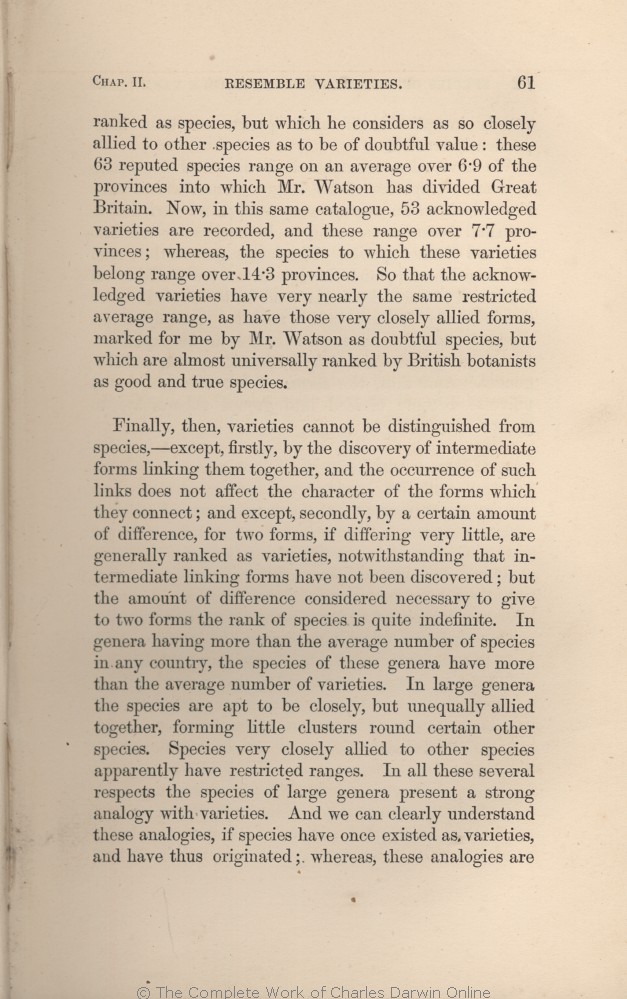ranked as species, but which he considers as so closely allied to other species as to be of doubtful value: these 63 reputed species range on an average over
6.9 | 6.9 1859 1860 1861 1872 | | 6.9 1866 1869 |
| catalogue, 1859 1860 1861 1866 1869 | | Catalogue, 1872 |
| 7.7 1859 1860 1861 1872 | | 7.7 pro- 1866 | | 7.7 1869 |
| provinces; 1859 1860 1861 1869 1872 | | vinces; 1866 |
| 14.3 1859 1860 1861 1872 | | 14.3 1866 1869 |
| very 1859 1860 1861 1866 1869 | very 1872 |
| those very 1859 1860 1861 1866 1869 | | the 1872 |
| Subtitle not present 1859 1860 1861 |
|
Summary. 1866 1869 1872 |
|
Finally,
then, | then, 1859 1860 1861 1866 1869 | then, 1872 |
| OMIT 1861 1866 1869 1872 |
| have the same general characters as species, for they 1859 1860 |
| species,— 1859 1860 1861 1872 | | species,—except, 1866 1869 |
| except, 1859 1860 1861 1872 | except, 1866 1869 |
| firstly, 1859 1860 1861 1866 | | first, 1869 1872 |
| ..... 1861 1866 | | linking 1859 1860 1869 1872 |
| forms 1861 1866 | | forms, 1859 1860 | | forms; 1869 1872 |
| linking 1861 1866 | | and 1859 1860 | | and, 1869 1872 |
| them together, and the occurrence of such links does not affect the character of the forms which they connect; and except, 1861 1866 |
| the occurrence of such links cannot affect the actual characters of the forms which they connect; and except, 1859 1860 |
| OMIT 1869 1872 |
| secondly, 1859 1861 1866 1869 1872 | | secondly 1860 |
| amount 1859 1860 1861 1866 | | indefinite amount 1869 1872 |
| difference, 1859 1860 1861 1866 | | difference 1869 1872 |
| for 1859 1860 1861 1866 |
| between them; for 1869 1872 |
| intermediate linking forms have not been discovered; 1859 1860 1861 1866 |
| they cannot be closely connected; 1869 1872 |
| two 1859 1860 1861 1866 | | any two 1869 1872 |
| is quite indefinite. 1859 1860 1861 1866 |
| cannot be defined. 1869 1872 |
| unequally 1860 1861 | | unequally, 1859 1866 1869 1872 |
| certain 1859 1860 1861 1866 1869 | | other 1872 |
| other species. 1861 1866 1869 | | species. 1859 1860 1872 |
| several 1859 1860 1861 1866 1869 | several 1872 |
| have 1859 1860 1861 1866 | have 1869 1872 |
| as, 1861 | | as 1859 1860 1866 1869 1872 |
| have 1859 1860 1861 1866 | have 1869 1872 |
| originated; 1861 1866 1869 1872 | | originated: 1859 1860 |
|









